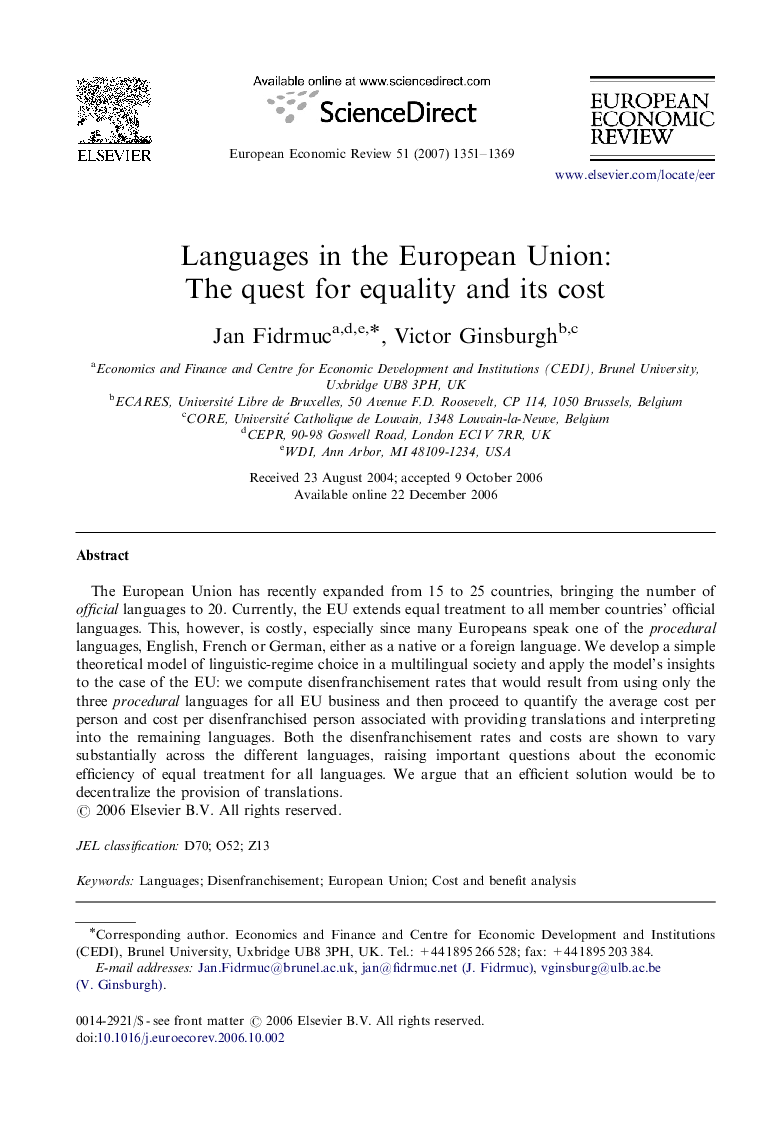| Article ID | Journal | Published Year | Pages | File Type |
|---|---|---|---|---|
| 5067553 | European Economic Review | 2007 | 19 Pages |
The European Union has recently expanded from 15 to 25 countries, bringing the number of official languages to 20. Currently, the EU extends equal treatment to all member countries' official languages. This, however, is costly, especially since many Europeans speak one of the procedural languages, English, French or German, either as a native or a foreign language. We develop a simple theoretical model of linguistic-regime choice in a multilingual society and apply the model's insights to the case of the EU: we compute disenfranchisement rates that would result from using only the three procedural languages for all EU business and then proceed to quantify the average cost per person and cost per disenfranchised person associated with providing translations and interpreting into the remaining languages. Both the disenfranchisement rates and costs are shown to vary substantially across the different languages, raising important questions about the economic efficiency of equal treatment for all languages. We argue that an efficient solution would be to decentralize the provision of translations.
